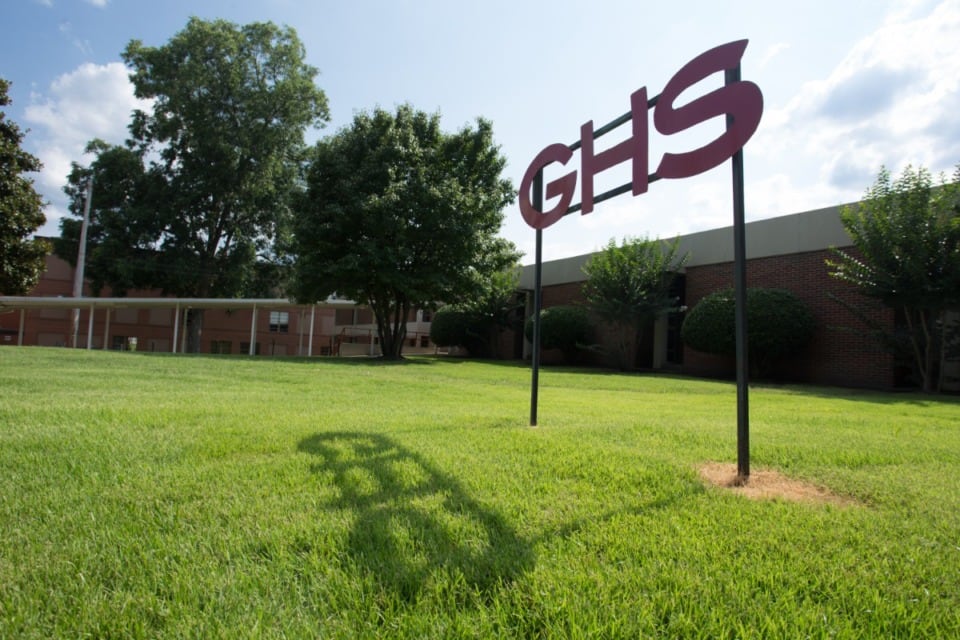Memphis school officials would have to transfer three suburban schools to neighboring Germantown under a bill that cleared the Tennessee Senate Tuesday. But the heavily amended legislation gives the two parties a year or more to try to settle the matter some other way before forcing a sale.
The bill, which passed 22-8 and now heads back to the House, says a county school district, such as Memphis-Shelby County Schools, can’t operate a school within the geographic boundaries of a municipal school system — unless the two districts negotiate otherwise.
Multiple senators who voted on the pivotal legislation said they were unhappy the state is stepping into a local dispute. And several acknowledged the matter is likely to end up back in federal court, where a judge approved a 2013 settlement transferring five of eight Germantown schools from the Memphis district to the Germantown school system.
The bill’s Senate passage is the latest development in a dispute that began with one of the nation’s most notable examples of a public school system splintering over race and class.
After the mostly Black Memphis City Schools merged with the mostly white and more affluent Shelby County Schools in 2013, six suburban towns seceded and created their own school systems a year later. Germantown Municipal School District grew out of that split and, as part of the court settlement, Memphis retained three schools — Germantown Elementary, Germantown Middle, and Germantown High schools — for the 3,300 students who mostly lived nearby in unincorporated parts of Shelby County.
In recent years, Germantown Mayor Mike Palazzolo lobbied for state legislation that would allow his community to take control of the three namesake campuses.
There was no discussion on the Senate floor Tuesday about what would happen to future students zoned for the schools if Germantown officials opt to shutter them and sell the valuable land.
Several senators said they found the legislation confusing.
“I’m struggling to understand why we’re doing this versus them doing this in a courtroom,” said Sen. Kerry Roberts, a Springfield Republican who voted against the bill.
Sen. Brian Kelsey, the Germantown Republican who sponsored the measure, said the courts look to state law to guide their decisions. “That’s what we’re defining here with this bill,” he said.
Memphis school officials have promised to challenge the bill in court if it becomes law.
A spokeswoman for Memphis-Shelby County Schools did not immediately respond Tuesday when asked about the Senate’s action. The district’s lobbyist, Tony Thompson, said he wouldn’t comment “on anything that might involve potential litigation.”
Under a late amendment offered by Sen. Ferrell Haile, the law would take effect next Jan. 1, but the transfer of property wouldn’t happen until July 1, 2023. That would provide sufficient time for the parties to work out their differences, said the Gallatin Republican, “and if they can’t, they can take it to court.”
The amended language also spells out that the property would be sold at fair market value and that Germantown would pay 25% down when the deed transfers, and the rest in eight installments over eight years. The Memphis district also would be allowed to operate the schools without rent for four years to let all of the high school’s students graduate.
Supporters framed Haile’s amendment as a compromise, but Senate Minority Leader Jeff Yarbro called the legislation unnecessary.
“We don’t have to pass a bill about every dang thing that comes up here, right?” said Yarbro, a Nashville Democrat. “Sometimes it’s best to let things work out the way things are supposed to work out without the legislature getting in the middle of it.”
Thompson, the lobbyist for Memphis-Shelby County Schools, said after the vote that Haile’s changes to the bill probably sought to pave the way for more negotiations or litigation.
“In the big picture, I think some members of the Senate saw it as a way to get this off their plate. Ultimately, it’s out of their hands now, and I can’t say I blame them,” said Thompson.
Kelsey did not believe the legislation would impact the operation of Lucy Elementary School in suburban Millington by Memphis-Shelby County Schools, as long as the two districts are in agreement.
“This language would allow any city and county school district to negotiate and come up with an agreement between now and June 30th of next year to determine exactly how those schools would operate going forward,” he said.
Marta W. Aldrich is a senior correspondent and covers the statehouse for Chalkbeat Tennessee. Contact her at maldrich@chalkbeat.org.





